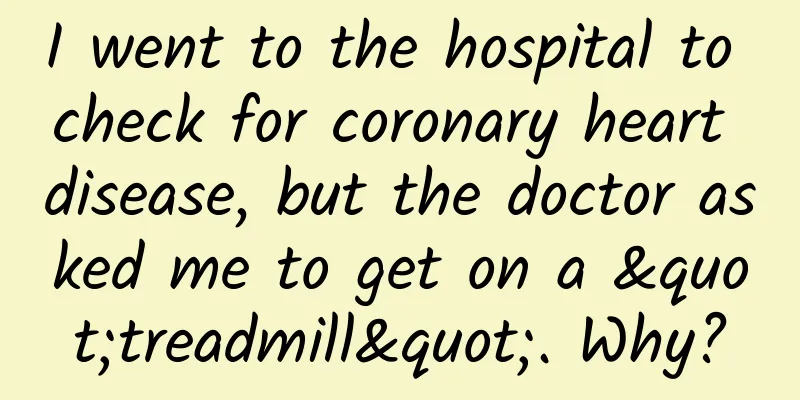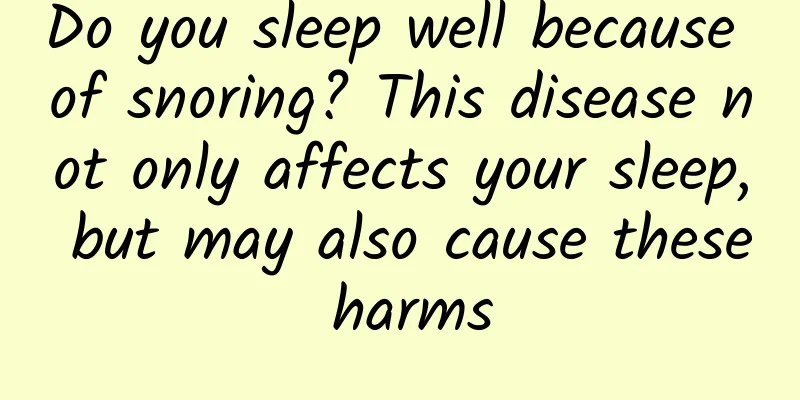The new year is over. If you don’t want to be emo after the holidays, take the psychologist’s “prescription to calm down” now!

|
The wonderful Spring Festival holiday has come to an end, the excitement has quietly faded, and we are instantly thrown back into "working man" mode, hurriedly returning to normal track. Switching from holiday to "work mode", going to work and school, the thought of these makes me feel depressed and uncomfortable... I'm afraid I'm suffering from post -holiday syndrome . Don’t panic yet, accept this “Spring Festival mind-recovering method”, which can help you say goodbye to post-holiday syndrome as soon as possible and adjust your body to the best condition. 1. What is “post-holiday syndrome”? "Post-holiday syndrome" refers to various physical or psychological problems that occur after a long holiday. Physically, it manifests as nausea, dizziness, loss of appetite, general fatigue, abdominal distension and diarrhea, etc. Psychologically, it manifests as mental depression, absent-mindedness, sleep disorders, lack of energy, affecting work and study efficiency, and even anxiety, neurasthenia, etc. The "post-holiday syndrome" occurs because the fixed rhythm and rules of life, work, and study are broken during the holidays. When the holidays are over, we have to re-establish this rhythm, and there may be a "chaotic period" of discomfort . 2. How to say goodbye to “post-holiday syndrome”? From a medical perspective, "post-holiday syndrome" is not a disease in the strict sense. How can we adjust ourselves so that we can devote ourselves to work and study after the holidays with full energy? 1. Don’t stay up late and live a regular life We should arrange our daily life reasonably, adjust our work and rest schedule, go to bed early and get up early, and develop a regular biological clock. If you don't sleep well, you can take a hot bath and listen to some light music to help you relax and fall asleep as soon as possible. Avoid playing with your phone or watching TV before going to bed, and try to keep the bedroom quiet and dark. At the same time, we must arrange our work reasonably, not "intensify" all at once, avoid overscheduled schedules that make it difficult to adapt, and allow ourselves to gradually get into working mode. 2. Control your mouth and eat healthily After eating too much meat and fish during the Spring Festival, it is easy to have indigestion, stomach bloating and other symptoms. After the festival, we should pay attention to timely adjust the diet structure, avoid continuing to take in too much oil and too sweet food without restraint, eat more vegetables and fruits, drink more water, supplement vitamins and dietary fiber, promote gastrointestinal motility, and eat some stomach-strengthening and digestion-promoting tablets or hawthorn tablets appropriately, and try to eat lighter meals to give the "overburdened" gastrointestinal tract a rest. 3. Get moving and relax Regular and moderate physical activity is very effective in relieving physical fatigue and mental tension. It can not only cheer up the spirit, but also strengthen the body and restore physical strength. We can choose appropriate sports according to our own situation, such as jogging, swimming, yoga, etc., which are all good choices to help relieve stress and relax the body and mind. Exercise at least 3-5 times a week, each time for more than 30 minutes, to achieve good results. 4. Don’t be anxious, face it positively Pay attention to adjusting your mindset, don't be anxious, face work and life with a positive attitude, constantly give yourself psychological hints, and emphasize positive and optimistic messages, such as "I am ready to face work challenges" or "I can overcome post-holiday syndrome." We can also do some relaxing activities, such as meditation, yoga, listening to music, watching movies, etc. At the same time, communicate with family and friends, share our feelings, and relieve negative emotions. 5. Don’t force yourself, seek medical attention promptly Experts from the Department of Psychology at Changsha Taihe Hospital remind that: Generally speaking, the discomfort caused by post-holiday syndrome will gradually subside within a week. If the symptoms are severe, last for a long time, the pressure exceeds the load, and affects normal life and work, it is recommended to seek help from a professional doctor in time. Pay special attention!!! For adults, it is relatively easy to relieve the "post-holiday syndrome" and restore the disrupted life routine. But for children and adolescents, the time spent using electronic products during the holidays increases, and the "post-holiday syndrome" is relatively more obvious. When it comes to the use of electronic products, the psychological advice is generally to adopt a replacement strategy , creating more interesting time to occupy the time spent using electronic products, rather than strong control. Helping children reduce their use of electronic products must be done gradually, not in a one-size-fits-all manner. In the early stages, parents can find some documentaries suitable for children to watch and watch them with them. After three to five days of adjustment, most children can eliminate the symptoms of "post-holiday syndrome" and adapt to a regular life. Quickly accept this "prescription for calming down" Go to work well~ Source: Changsha Taihe Hospital Follow @湖南医聊 to get more health science information! (Edited by YT) |
>>: Can girls still grow taller after menarche? You will know after reading this article!
Recommend
AD may not necessarily be Alzheimer's disease, but may be another difficult and complicated disease...
What strange diseases have you heard of? Let'...
How to unbind Evergrande Hengfangtong bank card? How to cancel Hengfangtong account? Detailed steps
How to unbind a bank card or cancel an account on...
What to do if the cervix is tilted to the left
Female friends all know that their bodies are str...
Why is the vaginal discharge brown?
Leucorrhea is one of the criteria many women use ...
What is a transient ischemic attack?
About 1/3 of stroke patients have transient ische...
Do you know these postpartum care knowledge?
Pregnancy and childbirth are one of the most impo...
Do you know these blood donation knowledge?
You should donate blood while you are still young...
What does breast physiotherapy do?
If there are some problems with the breast, it is...
Does it hurt for a woman's first time?
For women, due to different physical constitution...
How to delay ovarian aging?
Premature ovarian failure is the most common type...
Can you remove freckles during confinement? 4 easy steps to remove freckles
It is said that mothers are the most beautiful, b...
Premonitions of amenorrhea in women
In our daily life, many female friends will encou...
What causes brown vaginal discharge during pregnancy?
The problem of leucorrhea is a difficult and comp...
How much does a fallopian tube scan cost?
The number of cases of infertility in daily life ...
How effective is laser spot removal? Let you know the details!
There is now a laser freckle removal method that ...









